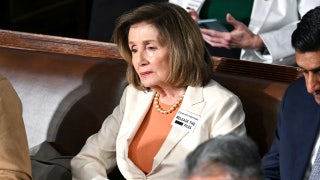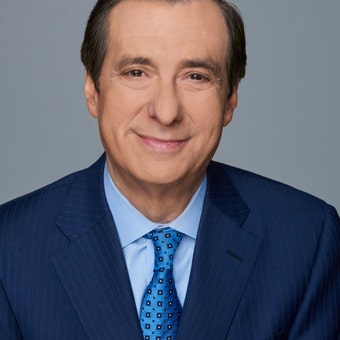The Capitol riot never should have happened.
The warning signs were there. In fact, they were incredibly public.
The feds knew. The Capitol Police knew. And yet, thanks to sheer incompetence, the officers were not prepared for the violent onslaught that led to five deaths.
These are the findings of two Senate committees, backed by members of both parties in a rare act of bipartisanship. Our media and political ecosystem has been so focused on whether Donald Trump was responsible, or Republican lawmakers, and whether Congress should create its own commission that we’ve lost sight of the massive failures leading up to Jan. 6.
What makes me angry is that the failures and miscommunications outlined in the report have been going on for decades and never seem to get fixed.
Remember "Bin Laden Determined to Strike in U.S.?" That was the title of the President’s Daily Brief given to George W. Bush just over a month before 9/11. The federal government didn’t exactly swing into action before that tragic day.
Again and again, before terror attacks and mass shootings and deadly riots, some law-enforcement or police or intelligence agency has specific information that fails to get to the right people. Then comes the finger-pointing, the hearings and commissions and the inevitable 17-point recommendations. There will be more information sharing, we are told, more "interagency cooperation," to prevent this from happening again. Until it does.
WHY MEDIA LIBERALS AND DEMOCRATS ARE SUDDENLY TRASHING JOE MANCHIN
The creation of the Homeland Security Department was itself a response to Sept. 11. Yet the new report faults that department as well.
What makes the assault on the Capitol particularly infuriating is that it wasn’t some secret plot. It was unfolding in plain sight. "Bring guns. It’s now or never," one Trump supporter posted online before Congress was to certify Joe Biden’s Electoral College victory.
The inevitable FBI memo, on Jan. 5, "warning of people traveling to Washington for ‘war’ at the Capitol never made its way to top law enforcement officials," as the New York Times put it. And the Capitol Police "failed to widely circulate information from its intelligence unit" that Trump backers were posting about overturning his election loss.
The Washington Post’s lead is tougher on the agency charged with protecting Congress:
"The U.S. Capitol Police had specific intelligence that supporters of President Donald Trump planned to mount an armed invasion of the Capitol at least two weeks before the Jan. 6 riot…but a series of omissions and miscommunications kept that information from reaching front-line officers targeted by the violence."
Omissions? You had one job. It’s really flabbergasting.
One officer, as Amy Klobuchar noted, was heard on police radio asking: "Does anybody have a plan?" And the answer was no.
I don’t want to detract in any way from the bravery of the officers who tried to deal with the riot. But their leaders did not serve them well.
Had these agencies taken the warnings and intelligence more seriously, there could have been 25,000 National Guardsmen guarding the Capitol on what was sure to be a volatile day. Instead, they were summoned in the following days, when it was too late.
Various officials said they were concerned about the "optics" of such a display of military force. What a short-sighted view that turned out to be.
According to the report, Capitol Police intel officials knew as early as Dec. 21 that some protesters planned to come with guns and were sharing maps of the domed building online and discussing the various entry points. But that info was shared only with top commanders and went unmentioned in later security assessments on Dec. 23 and Dec. 30. A Jan. 3 report spoke only of "the possibility that the protesters may be inclined to become violent."
SUBSCRIBE TO HOWIE'S MEDIA BUZZMETER PODCAST, A RIFF OF THE DAY'S HOTTEST STORIES
The committee, which was hampered by limited cooperation, made the usual calls for better planning and training, as well as intelligence gathering. But we know from sad experience that these will largely fall by the wayside once the sense of crisis has passed.
The events surrounding Jan. 6 have become so politicized that it seems the basic challenge—protecting our citadel of democracy—has already slid onto the back burner.










































